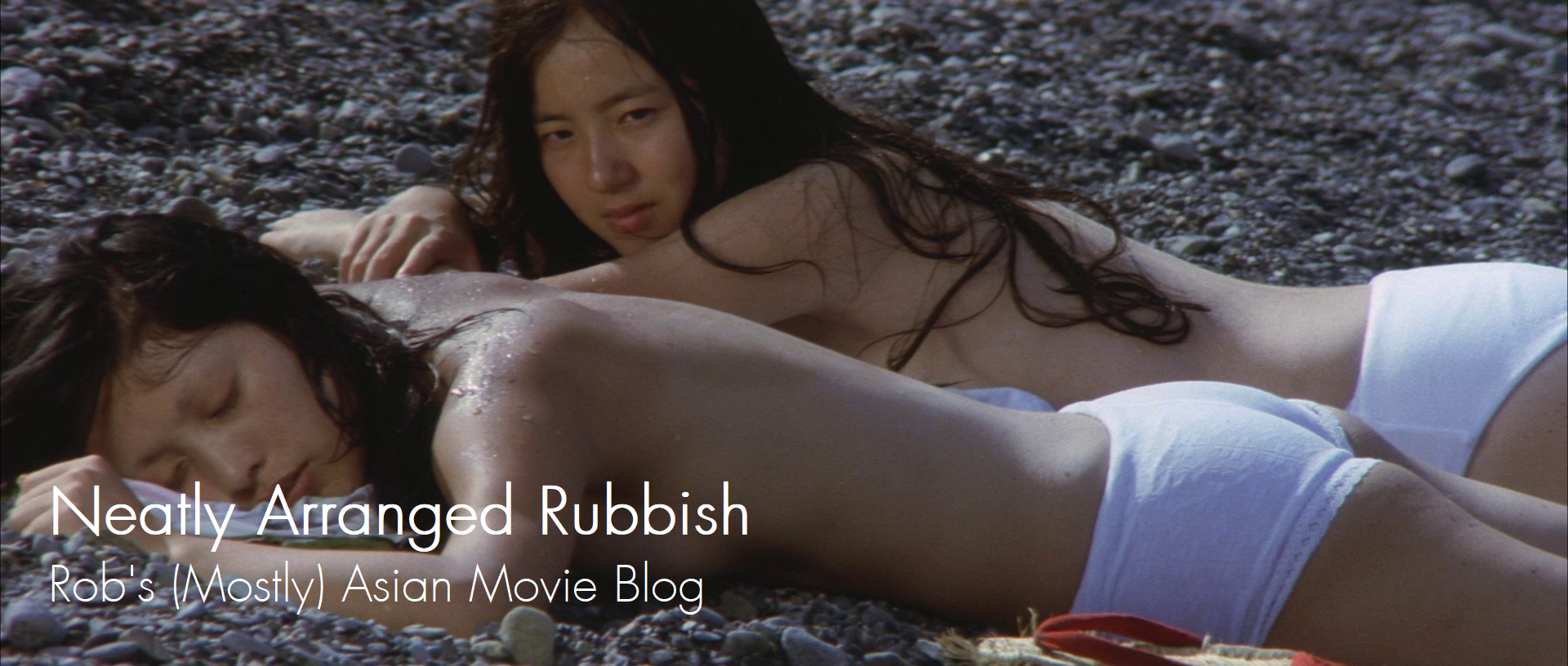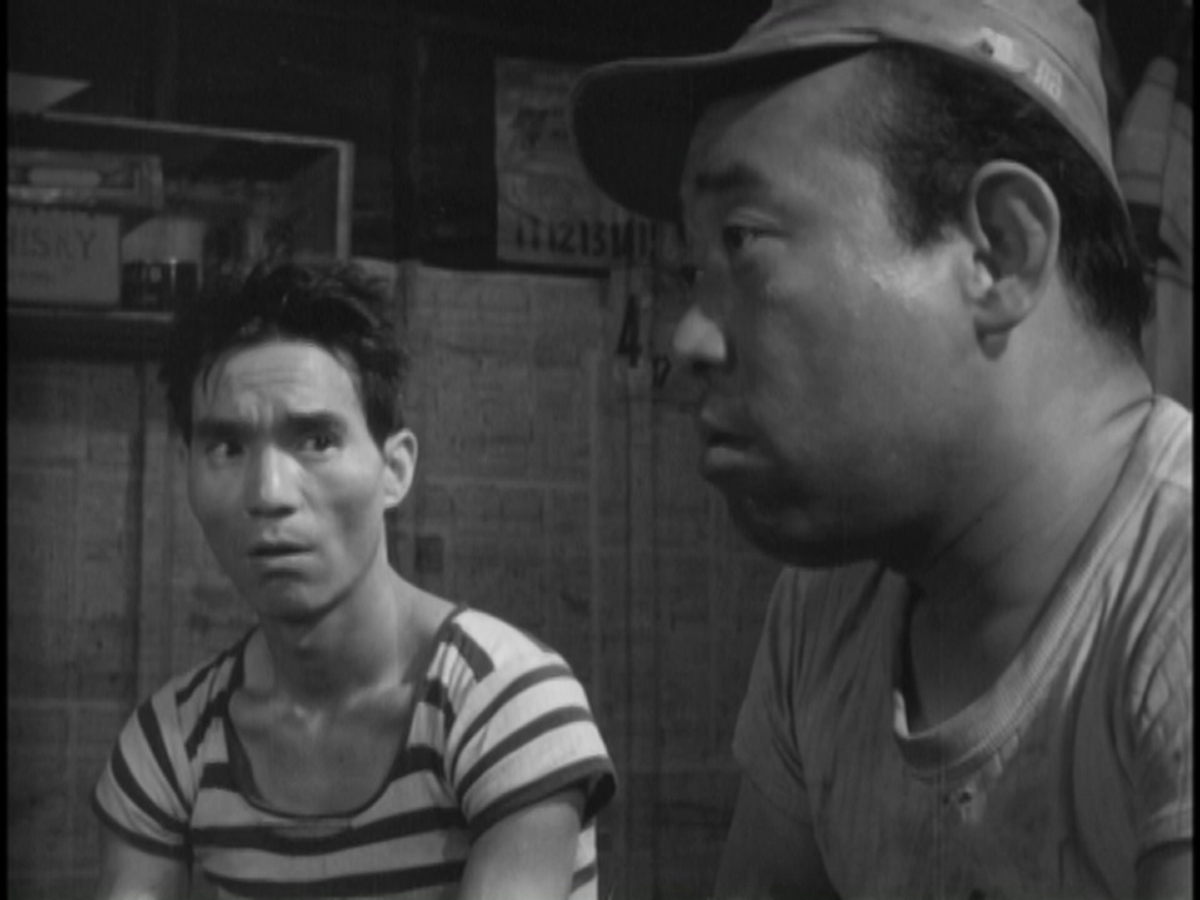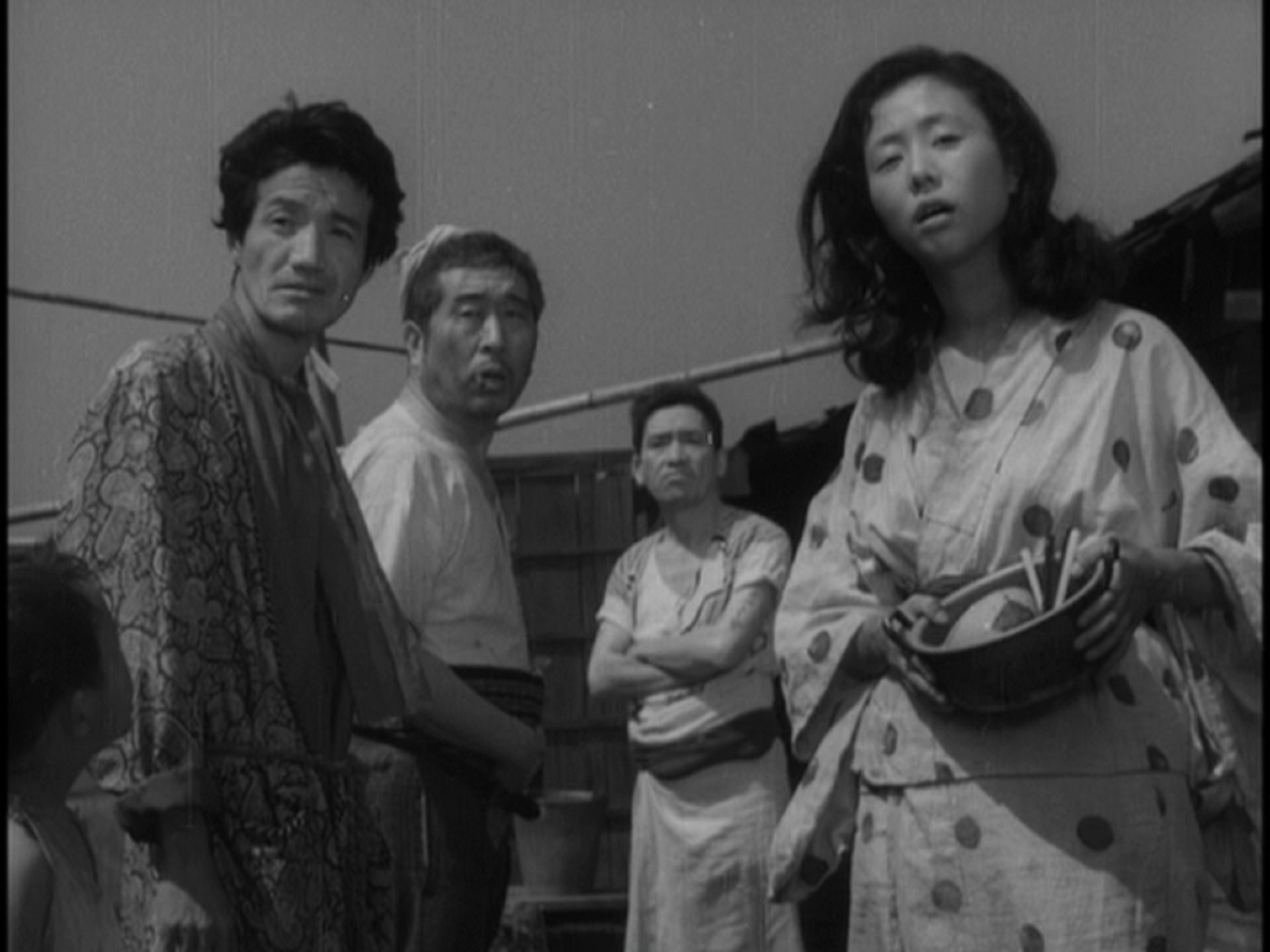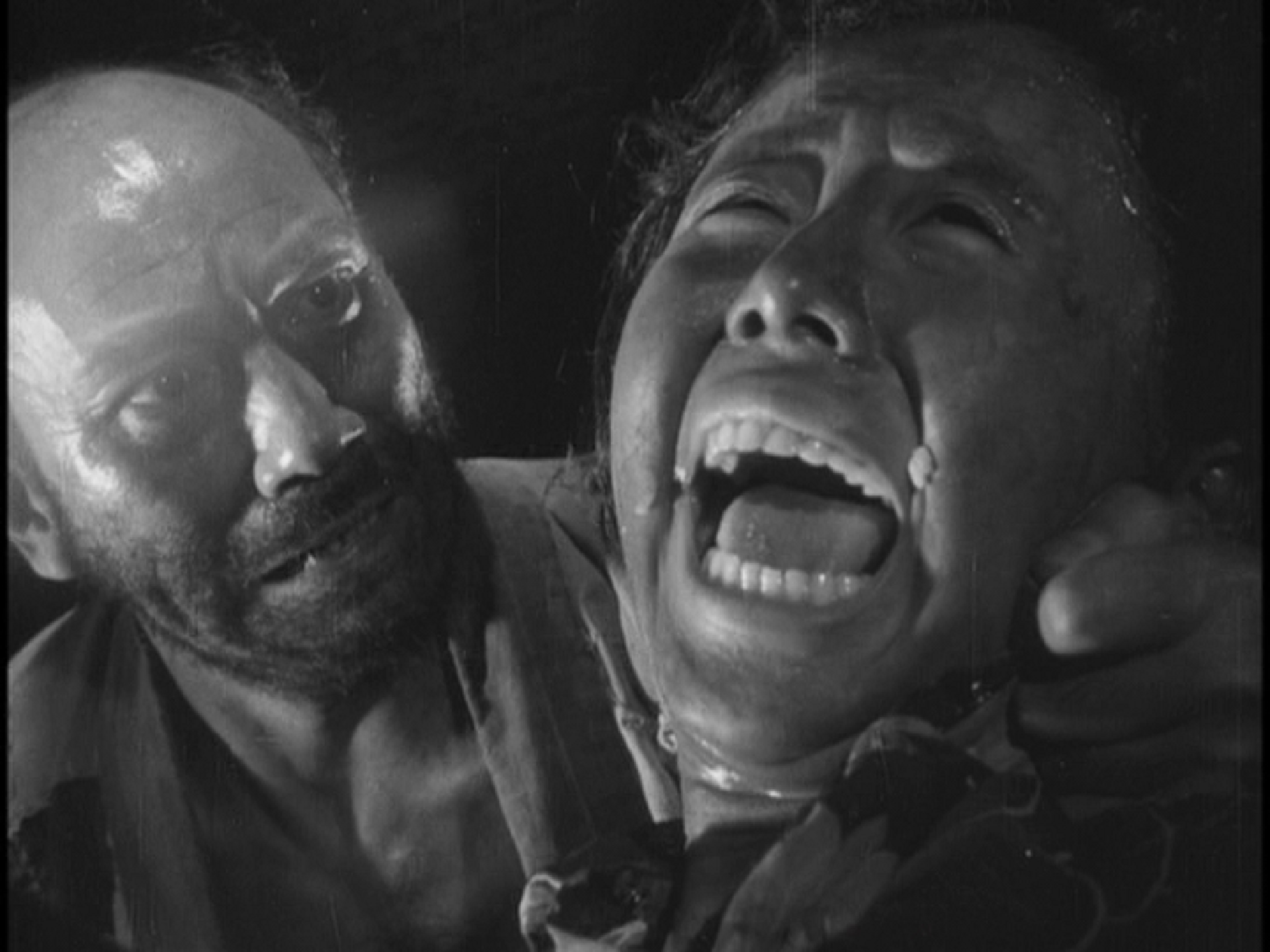Last Updated on January 24, 2021 by rob
After being raped a traumatised woman named Tsuru (Nobuko Otowa) wanders into a squatter camp and is immediately taken advantage of by Toku (Taiji Tonoyama) and Pin (Jukichi Uno), two residents keen to use her to fund their gambling habit. Exploiting Tsuru’s good nature by posing as a hard up student Pin worms his way into Tsuru’s affections and convinces her to whore herself out to pay for his ‘studies’. Then, one day, Tsuru looks into Pin’s face and suddenly, horribly, the truth dawns on her.
Ditch is a tough but fair-minded film, its theme summed up by a character who remarks ‘The tough eat the weak and that’s just the way it is.’ It neither condones nor condemns the behaviour of Toku and Pin and in fact finds plenty of moments with which to contradict our initial impressions. I particularly liked the pang of conscience that afflicts Toku as he waits for Tsuru to return from a day’s whoring. He really doesn’t like what he’s making her do and such moments are all the more powerful for being underplayed. The same for the pivotal scene where Tsuru looks into the face of the man who says he loves her, a sequence all the more disturbing because Shindo never actually shows us Pin’s face, only Tsuro’s reaction to it. Even so, Ditch has a couple of problems – a somewhat scattershot focus on various subplots and inhabitants of the squatter camp when the figure of attention should probably be Tsuru herself and a gurning, village idiot performance from Otowa who resembles a refugee from a Two Ronnies sketch.
And yet … and yet, despite this apparent handicap Otowa finds something authentic and moving in her character. So much so that by the time events come to their tragic conclusion you’re as furious and sickened at the bastards who’ve exploited her and entirely in agreement with the actions of a little boy who runs up to Pin, at this point on the ground hypocritically wailing and begging for forgiveness, who kicks him hard in the face. Performances aside, the emotional impact of the film also owes much to the montage techniques of early Russian cinema not least a harrowing and brilliantly edited sequence in which the faces of all the men who’ve made her life a misery pass before a deranged Tsuruko as she waves around a gun she’s seized from a policeman. As a portrait of squalid, desperate, hardscrabble humanity Ditch is as unrelenting as anything Shindo directed and yet like most of his work that merciless gaze is balanced by a compassion for its subjects and a recognition that the worst qualities of human beings often sit side by side with the best.



